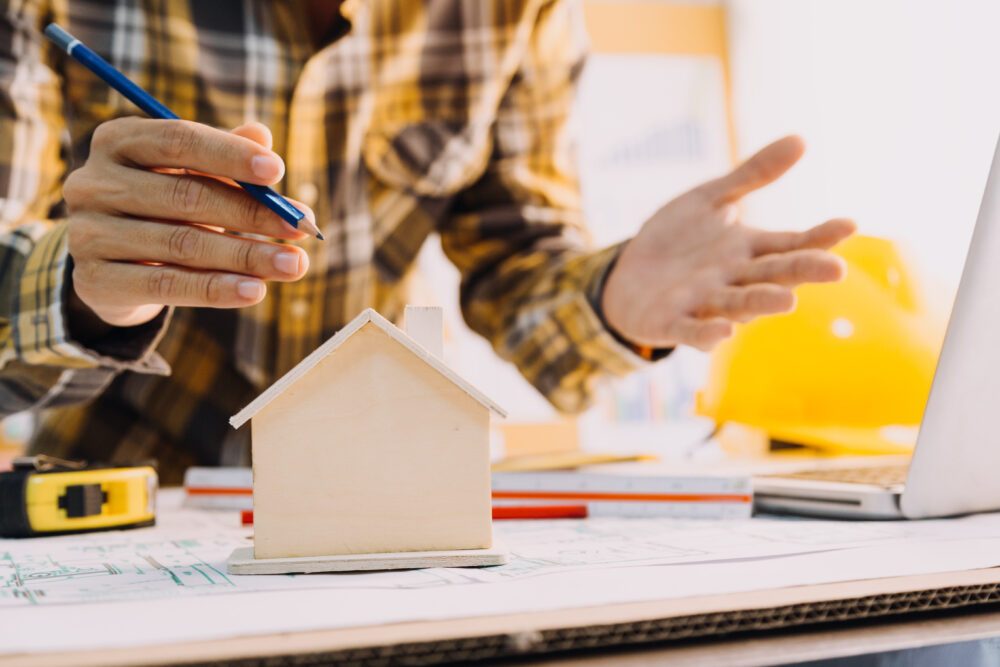
Flipping houses can be a great way to turn a profit quickly and grow your wealth. However, investing in real estate often requires significant upfront capital. If you don’t have a lot of savings, you may be wondering how to flip houses with no money. Here are three strategies that you can use to climb the real estate ladder with minimal savings.
Tap Your Home Equity
If you already own a home, you may be able to tap the equity to fund your house-flipping project. Lenders will usually allow you to borrow up to 80% of the value of your home using either a home equity loan or line of credit. Home equity loans and lines of credit tend to have slightly higher interest rates than conventional mortgages, but they’re still affordable financing options.
A home equity loan is typically disbursed as a one-time, lump-sum payment. The interest rate is usually fixed and the repayment period can range from 5 to 30 years. However, you can use any proceeds you earn from your house flip to pay off the remainder of the loan early.
A home equity line of credit is revolving and works sort of like a credit card. You’ll have a credit limit and can borrow money when you need it up to that maximum. This borrowing flexibility makes HELOCs a great funding option for flippers who may not know exactly how much their renovation will cost.
Keep in mind that borrowing against your home comes with some risk. If you lose money on your house flipping project, you may have trouble making the payments on your home equity loan. Defaulting on your loan could cause you to lose your primary home, which is something to carefully consider before you go this route.
Live In the Property While Flipping It
Another example of how to flip houses with no money is to live in the property while you flip it. Certain government-backed mortgages like USDA and VA loans don’t require a down payment. However, there are usually occupancy and eligibility requirements you’ll have to meet.
Typically buyers have to move into the home shortly after closing and occupy it for at least a year. So you’ll have to live in the house while you renovate it and wait a while to sell it. Although this strategy requires patience, it can be an economical way to fund a home-flipping project because of the low-interest rates offered by government-backed loans. Plus, spreading out the project over the course of a year may enable you to cash flow the renovation and avoid borrowing additional funds.
Keep in mind that VA loans are only open to veterans, service members, and surviving spouses, while USDA loans can only be used on eligible rural properties. If you don’t qualify for these loans, you may be able to get an FHA loan or conventional mortgage with a low down payment amount of around 3%. Most loans allow buyers to use gift funds from relatives for the down payment and closing costs, allowing you to purchase a home with minimal savings. Some programs and grants offer down payment assistance to qualifying borrowers.
Find a Private Lender
If you have flipping experience, you may be able to leverage your skills and find a private lender or real estate investor to partner with. Private lenders are usually individuals who have significant liquid assets and are looking to earn interest by lending flippers money. Some private lenders may factor your credit score and financial history into the lending decision, but others may not, allowing you to secure financing even if you don’t have great credit.
Certain lenders may not require a down payment and will allow you to borrow the full amount you need to buy and renovate a home. You may also be able to pay the real estate investor a percentage or flat amount of the proceeds from the sale of the flipped home instead of interest. However, private lenders who prefer to collect interest may charge higher rates than banks and credit unions, which could cut into your profits.
Do you have any suggestions on how to flip houses with no money? Share your tips in the comments!
Read More
Is It Time to Buy A Home? Only If You Can Pay Cash and Here’s Why
Career Highlight: What is A Real Estate Developer?
17 Lazy Ways To Invest In Real Estate
Come back to what you love! Dollardig.com is the most reliable cash-back site on the web. Just sign up, click, shop, and get full cash back!
Vicky Monroe is a freelance personal finance and lifestyle writer. When she’s not busy writing about her favorite money saving hacks or tinkering with her budget spreadsheets, she likes to travel, garden, and cook healthy vegetarian meals.
Comments